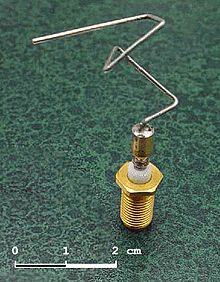The difference is with biological evolution there are non-beneficial mutations that need to be dealt with. The systems are already working at their best and any mutation is really a threat to undermining that system.
Both false. Evolutionary algorithms make random variations in the characteristics (traits) of the virtual populations they evolve - many, if not most, of these variations will reduce the effectiveness of the design. These will be culled in the selection process, and the very few that are improvements will be used to produce the next generation. It's a very wasteful process - in a computer, processing virtual designs, it doesn't matter; in the real world, with living creatures, it's an unforgiving slaughter that produces amazing results at terrible cost.
Living organisms are only 'working at their best' when they are perfectly adapted to their environment(s). Since most environments are dynamic, this is not possible, and organisms must continually adapt and evolve to survive.
Life can change environments rather than adapt to them, life can co-op with other life to gain what is need to fit into an environment because the other living things have the right stuff already for that environment. Plasticity allows living things to change in features without the need for adaptive evolution. There are developmental processes that allow living things to switch on pre-existing genes to help them adapt without having to blindly find the right stuff through evolution. Other influences can sidetrack adaptive evolution and dictate terms of what will happen ie epigenetics.
Sure; it's well accepted that adaptation precedes evolution - those that adapt less well don't contribute so much to the next generation; hence, evolution.
It's also true that life changes environments - more often than not to it's own detriment, which means it must adapt - and if it survives, it will evolve. You probably don't remember the
Oxygen Catastrophe...
It's fine to switch on the genes you need if you've got them (where do you think they came from?); if you haven't, you struggle until either you evolve them or you die out (or you don't need them any more).
Yes, epigenetics is useful for relatively short-term adaptations for one or a few generations, where evolutionary changes are too slow - but it's limited to regulation of the existing genome. And guess what? Epigenetics is a gene regulation system that has
evolved to fill that adaptation gap.
Plasticity allows individuals to adapt over individual lifetimes, but only the plasticity, not the adaptive changes, is inherited - each generation must adapt afresh. It allows populations to survive until the advantageous traits are genetically fixed. Organisms that occupy a greater range of environments or have more dynamic environments show greater plasticity - why? because greater plasticity is a selective advantage in those situations - plasticity is an evolved trait.
... the example of evolving an antenna only shows how the idea of evolution was more about a calculated idea of mathematics rather than a real explanation of an organic process for how life changes that took into consideration the entire picture and influences on life.
Lol! - we took the fundamental principle from nature - we don't need all the bells and whistles in a static well-controlled virtual environment with no competition or resource limitations.



